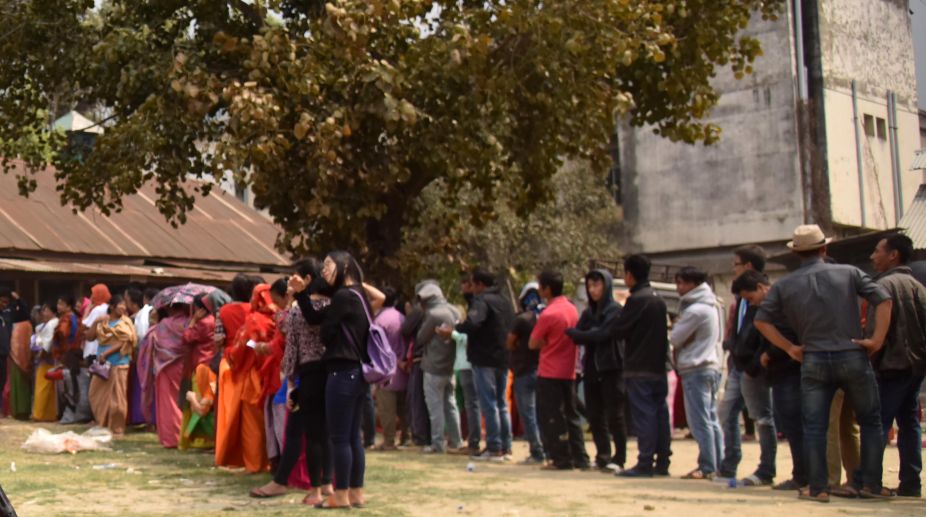Cadres of the United People's Front and the Kuki National Organisation exercised their franchise for the first time in the just-concluded Manipur Assembly elections. These two groups are a conglomeration of the KukiZomi armed groups based in Manipur and also voted in the 2014 general election. They had signed the “Suspension of Operation” with the Army in 2008 and a political dialogue started in 2016.
Initially, the Okram Ibobi Singh government refused to be part of it but relented later. According to the chief electoral officer, Dewangan, arrangements were made to allow 2,228 cadres, confined in 14 designated camps, to exercise their democratic rights through postal ballots.
Following are excerpts from an email interview by this correspondent with the spokesperson of the KNO, Seilen Haokip, before the elections.
Advertisement
Was there any invitation to cadres from the EC to vote as in the 2014 general election? Was the KNO/UPF willing to vote? What were the arrangements?
Yes, the Election Commission made arrangements for cadres to cast their votes. We agreed, as honourable citizens of India, that members of KNO and UPF will exercise our franchise. As in 2014, booths were arranged in designated camps.
Were there any issues as reported in 2014, such as logistics, security, or the distance of polling booths?
Polling at designated camps took place without any hindrance. There was no major issue even in the 2014 general election.
What about election ID cards? Do all the cadres have their Identity cards?
adres have their own identity cards, which they use for exercising their franchise. Now that the KNO/UPF are in the SoO mode and the dialogue is already in progress, what is KNO/UPF's take on electoral politics-in terms of participating in the process under the Indian system. KNO and UPF are seeking a political settlement within the framework of the Constitution. Therefore there is no concern of contrary activities against the democratic process. Please note, KNO and UPF are fighting for their constitutional rights and accordingly engaged in political dialogue with the government. We are not secessionists.
Any comment on the Manipur assembly election 2017?
The KNO and UPF will reciprocate the government's goodwill. The nation comes first, party politics is secondary.
What is the status of the dialogue?
Tripartite political dialogue commenced on 15 June 2016 with the Government of India. The second round of talks was held on 19 October 2016. The next round is expected soon. In the first breakthrough dialogue in 2016 with the Union home ministry, the joint secretary (Northeast) said that the government is serious. Moreover the Union home minister Rajnath Singh during his election campaign in Churachandpur on 2 March said that the Centre is interested in pursuing the dialogue.
What is your comment?
KNO and UPF are confident that the government will abide by and continue deliberations keeping in mind the safeguard of tribal minorities enshrined in the Constitution. We have placed our demands to both the Centre and the Manipur government. The next round is expected soon. It will focus on the stated demands. We trust that it will be honourable and meaningful as our demands are not for independence or separation but the constitutional rights of our people.
What are your key demands?
The KNO-UPF demand is for Statehood, comprising our ancestral lands within the existing state of Manipur in which the chiefs possess legal ownership deeds.
Now that a political dialogue has began, what about the SoO? Has it been extended? How many designated camps are there? What are the technicalities in these designated camps? Will UPF and KNO surrender arms?
SoO was extended for one year at the first round of talks. SoO remains the same as before the talks commenced. We have seven designated camps for the KNO and five for UPF. The cadres are to stay in designated camps and they are in possession of the agreed number of arms to guard the camps. The remaining weapons are under lock and key with security forces and the camp CO. Arms will not be surrendered; they will be addressed following a political settlement.
Advertisement










